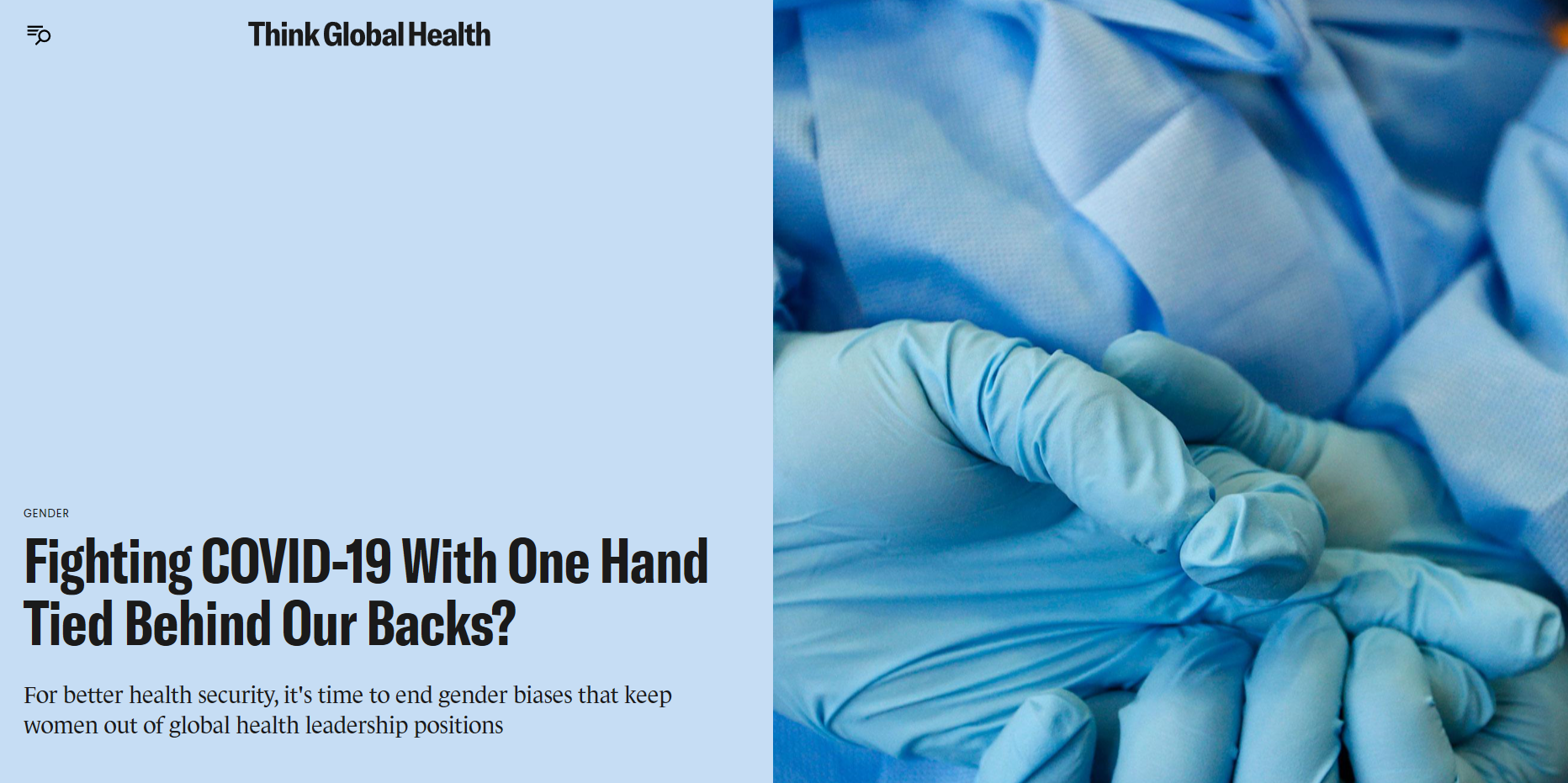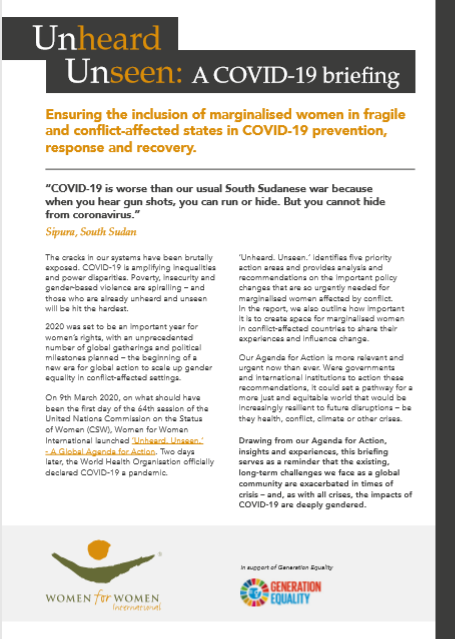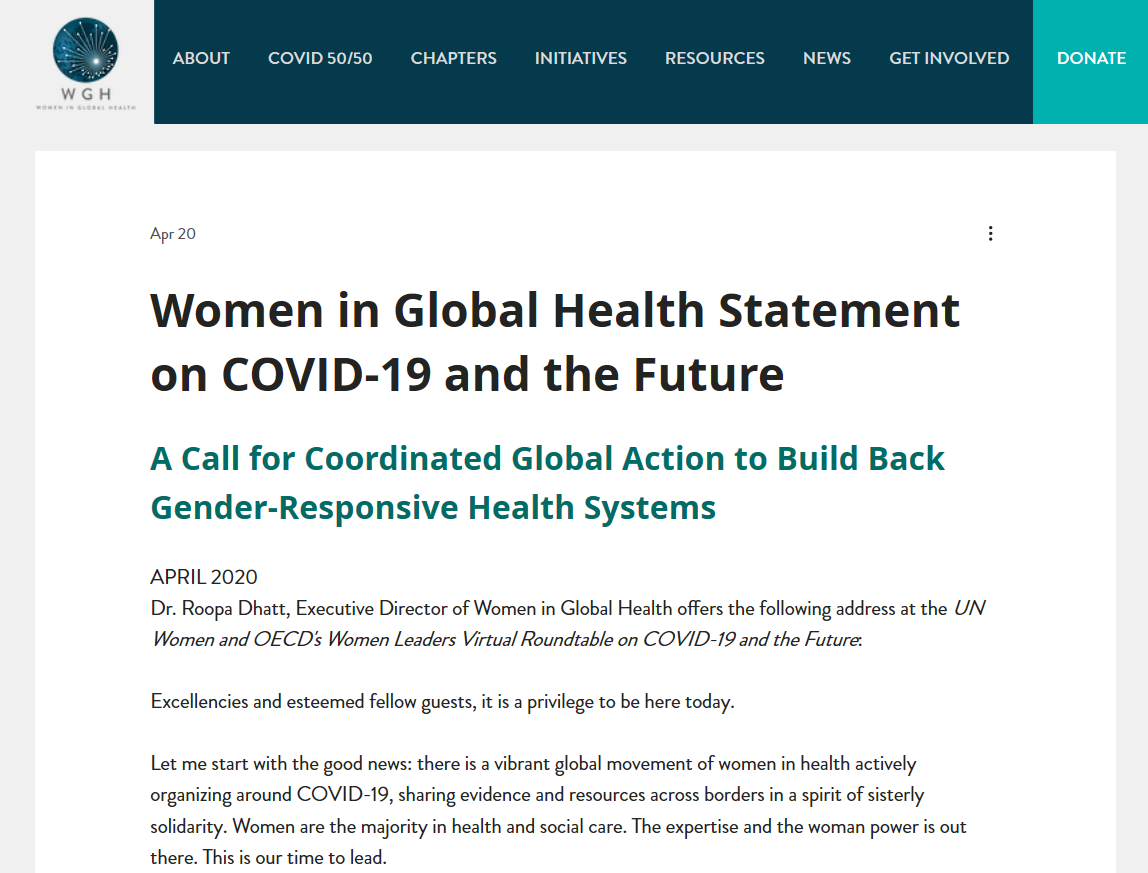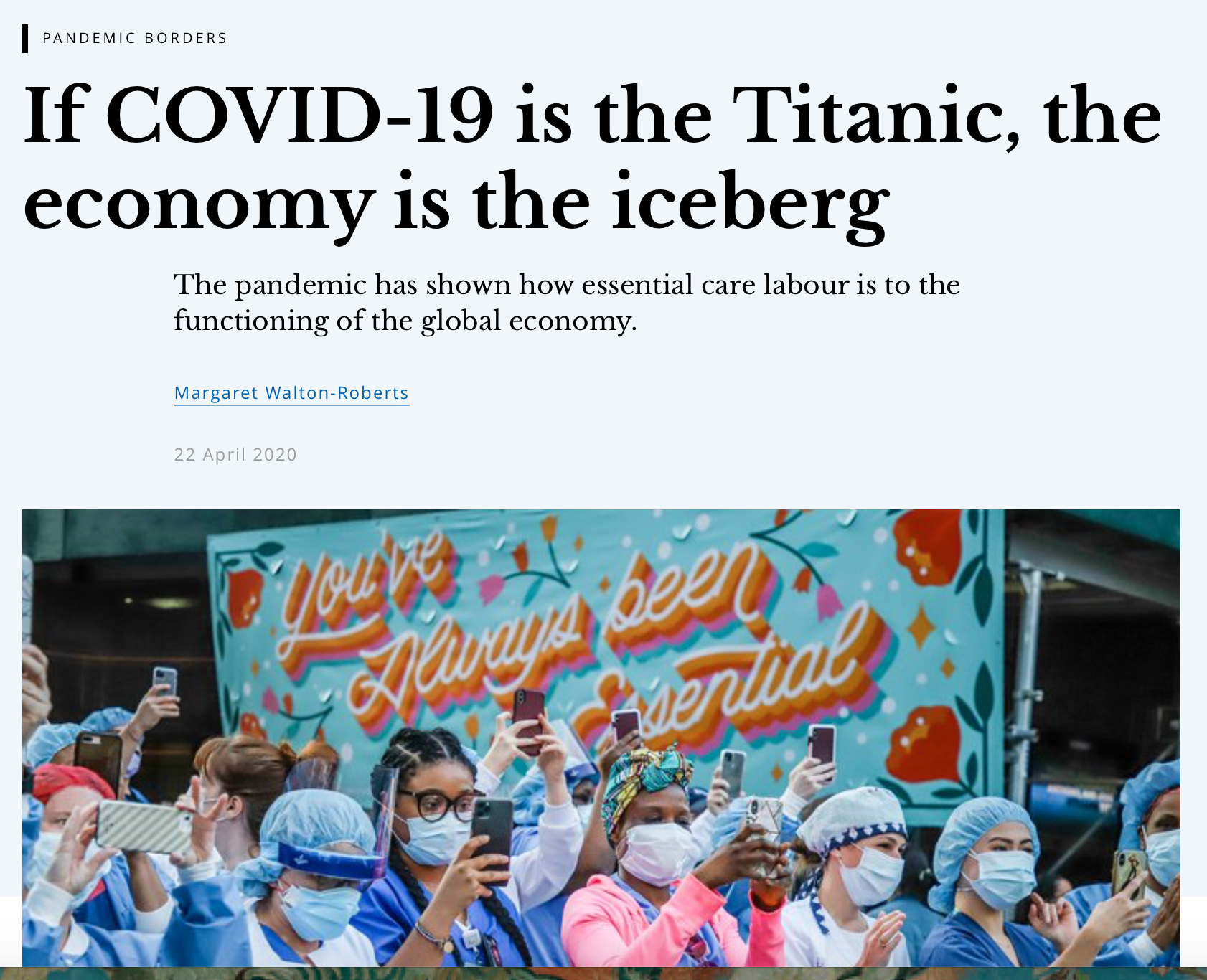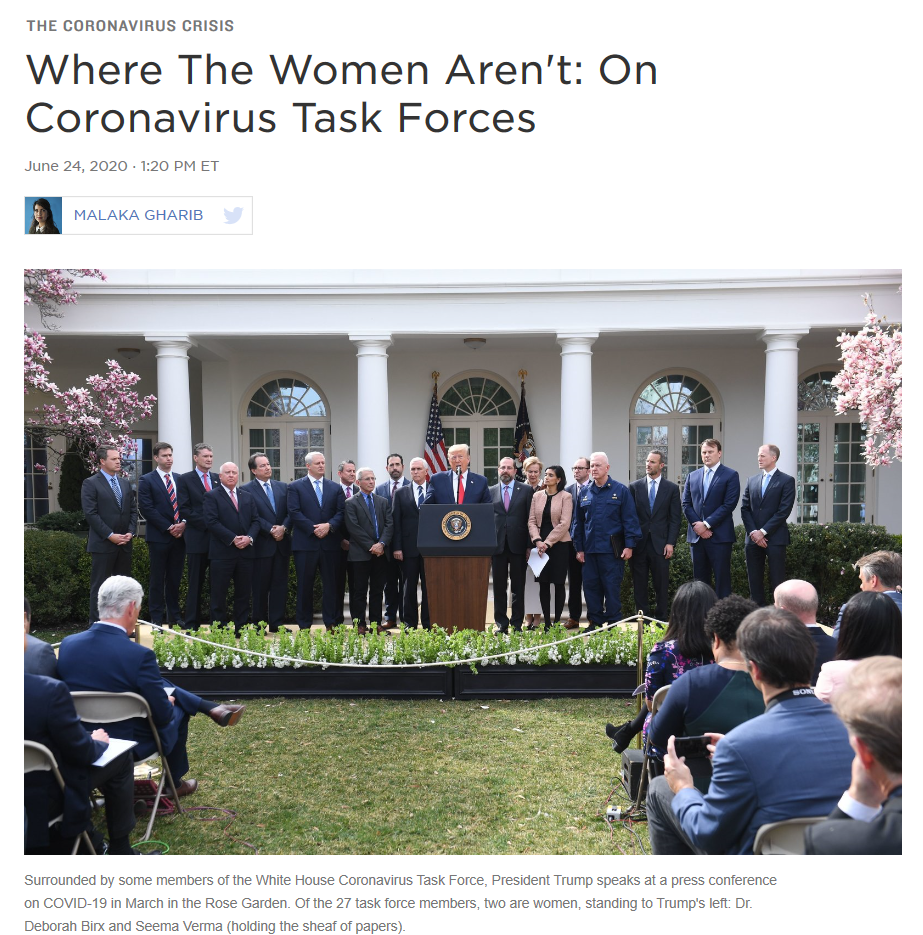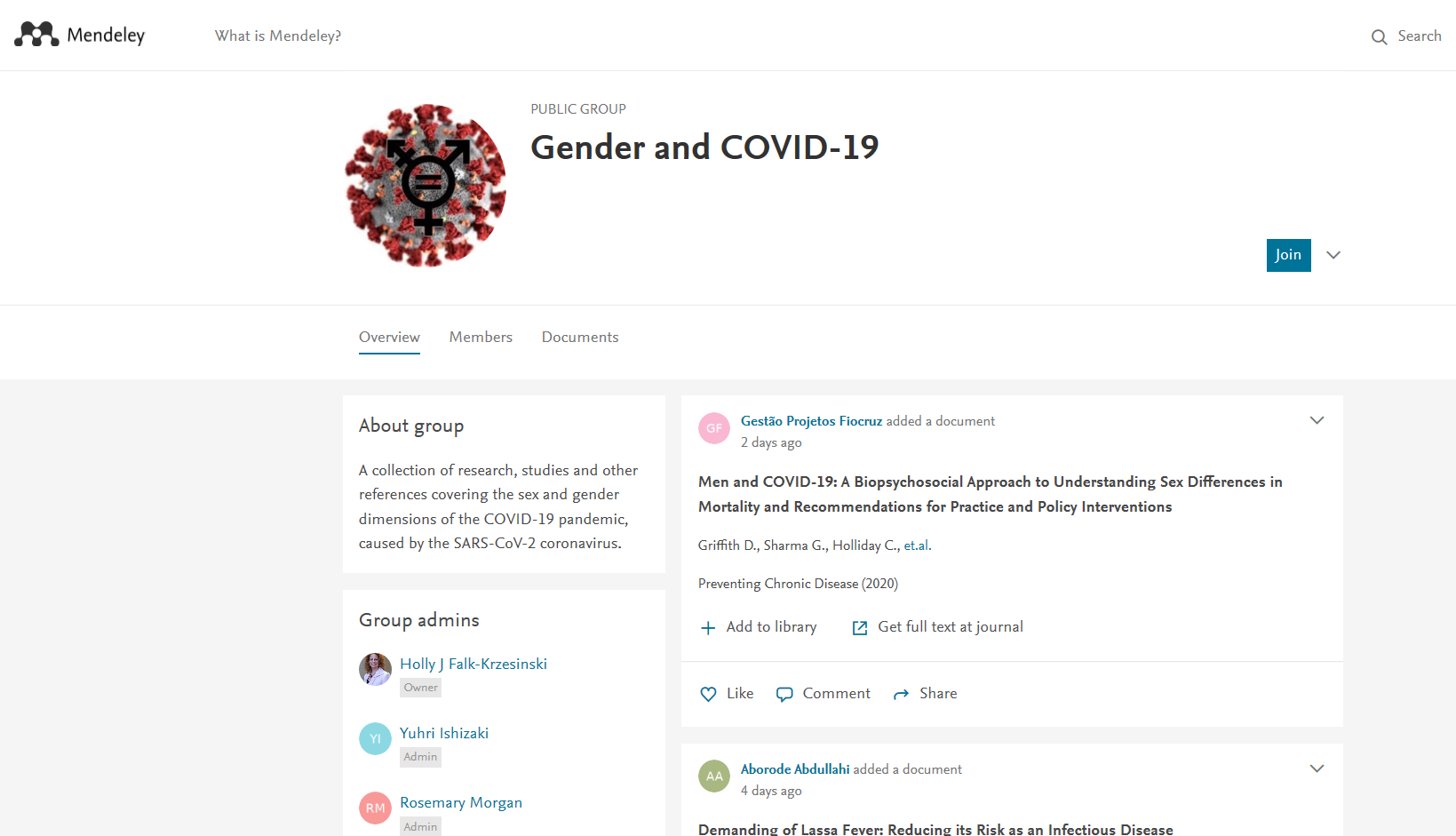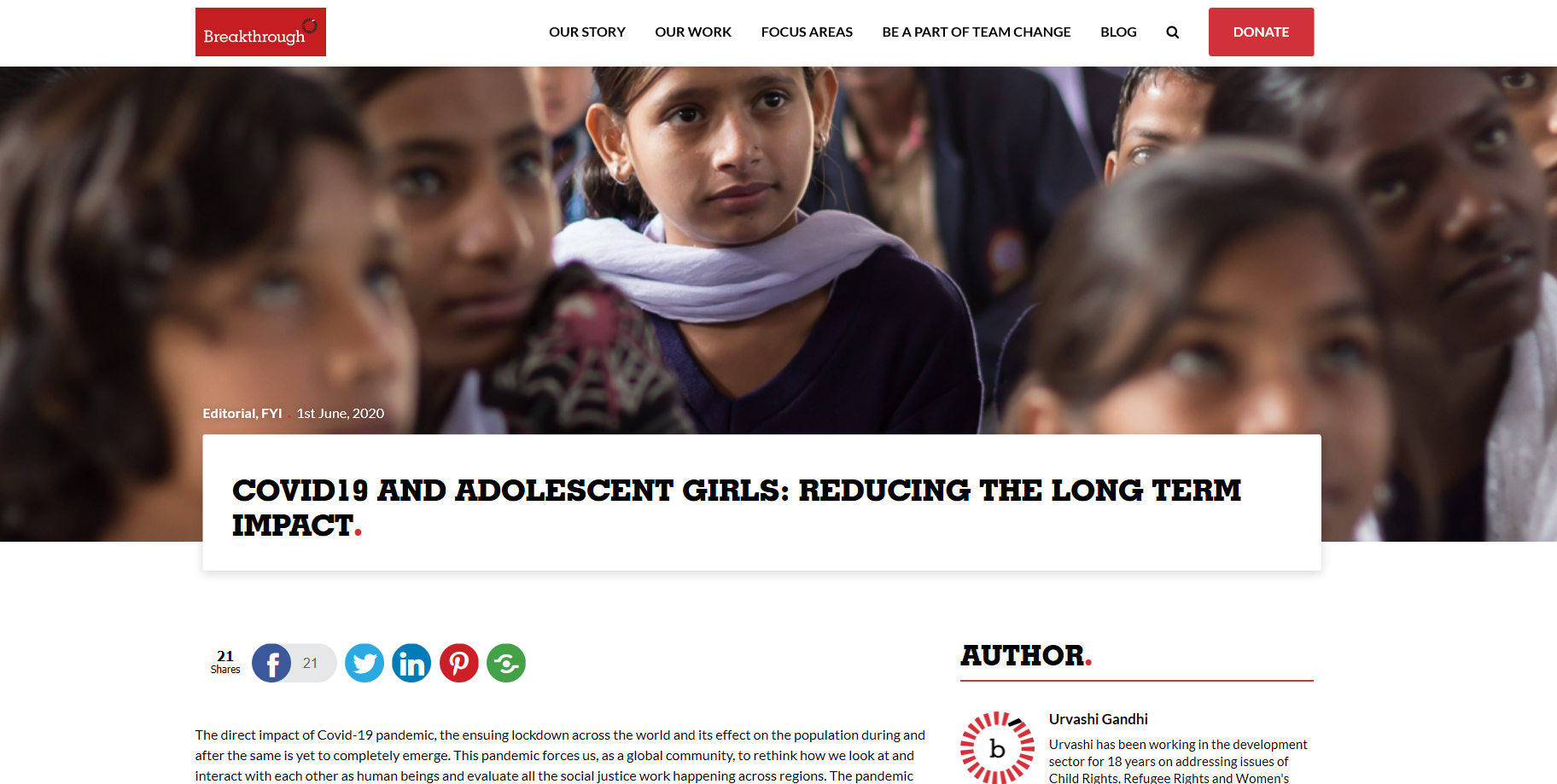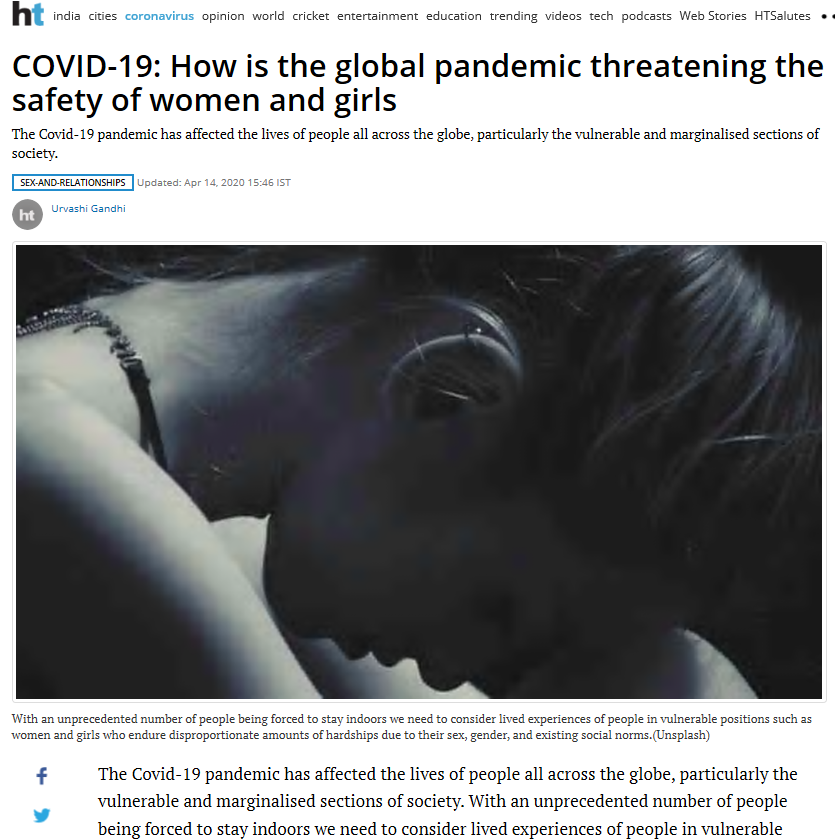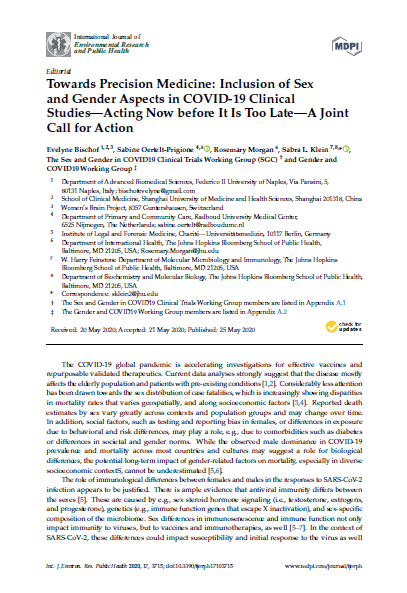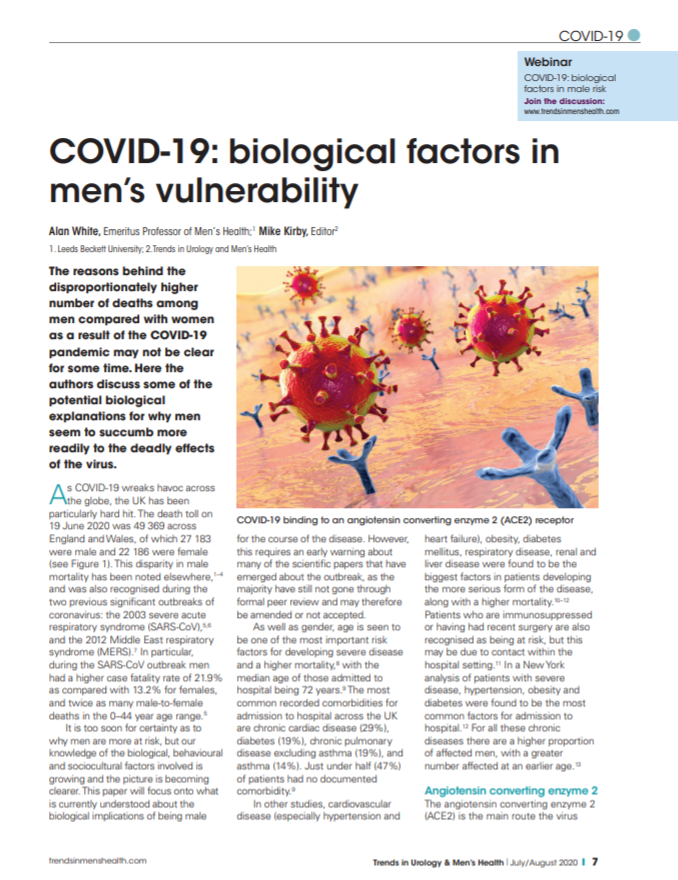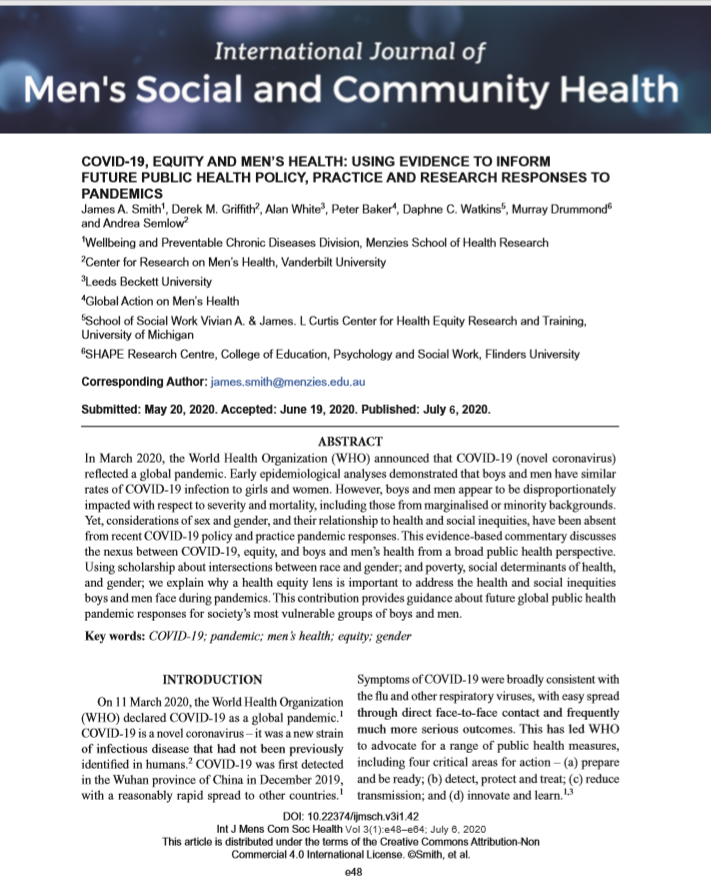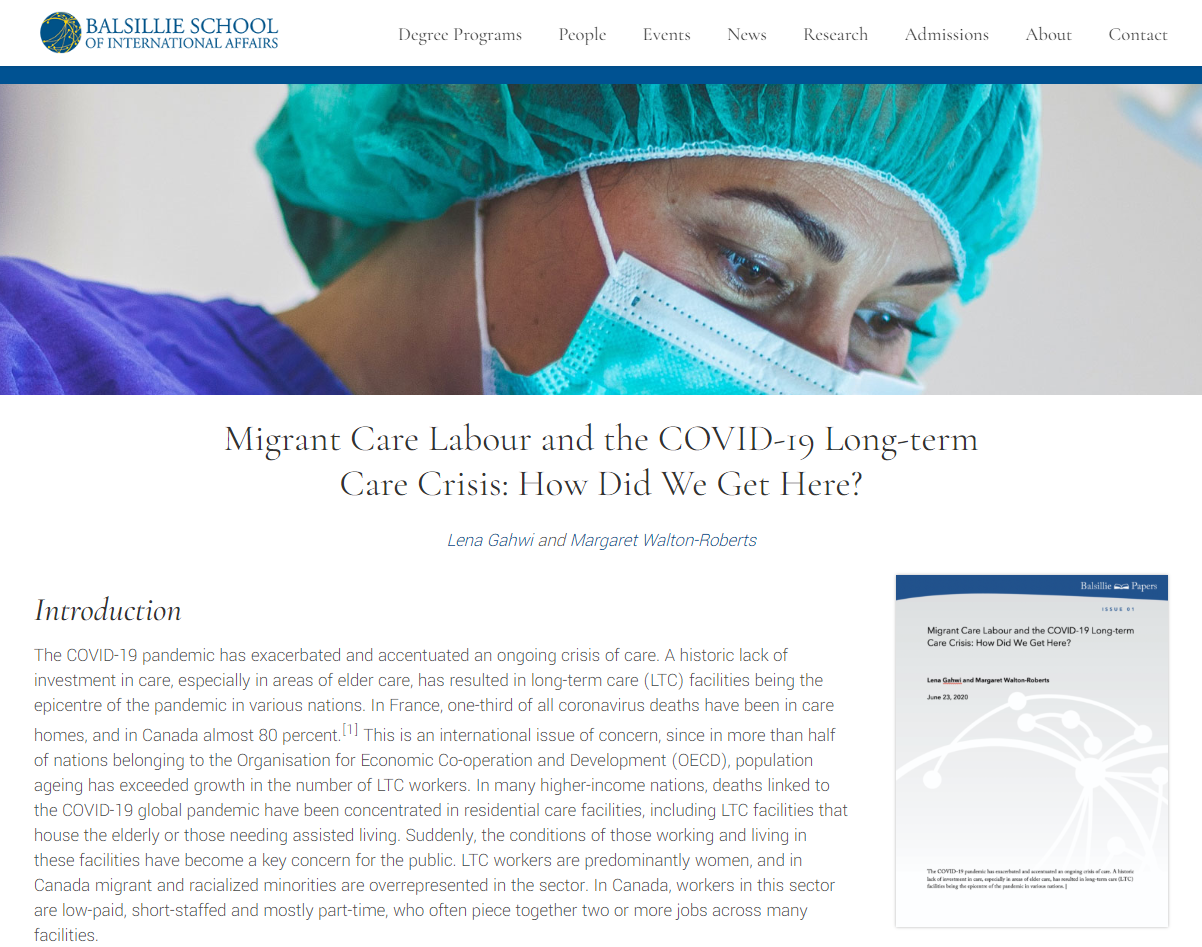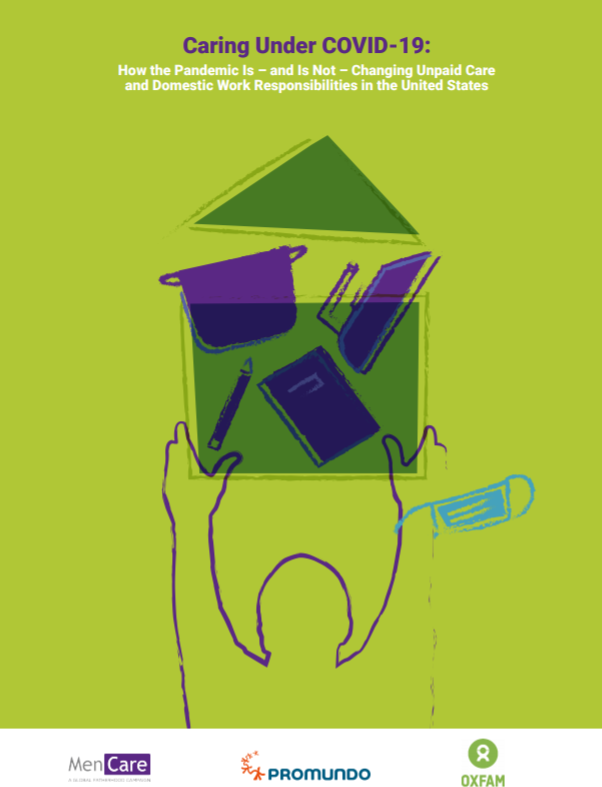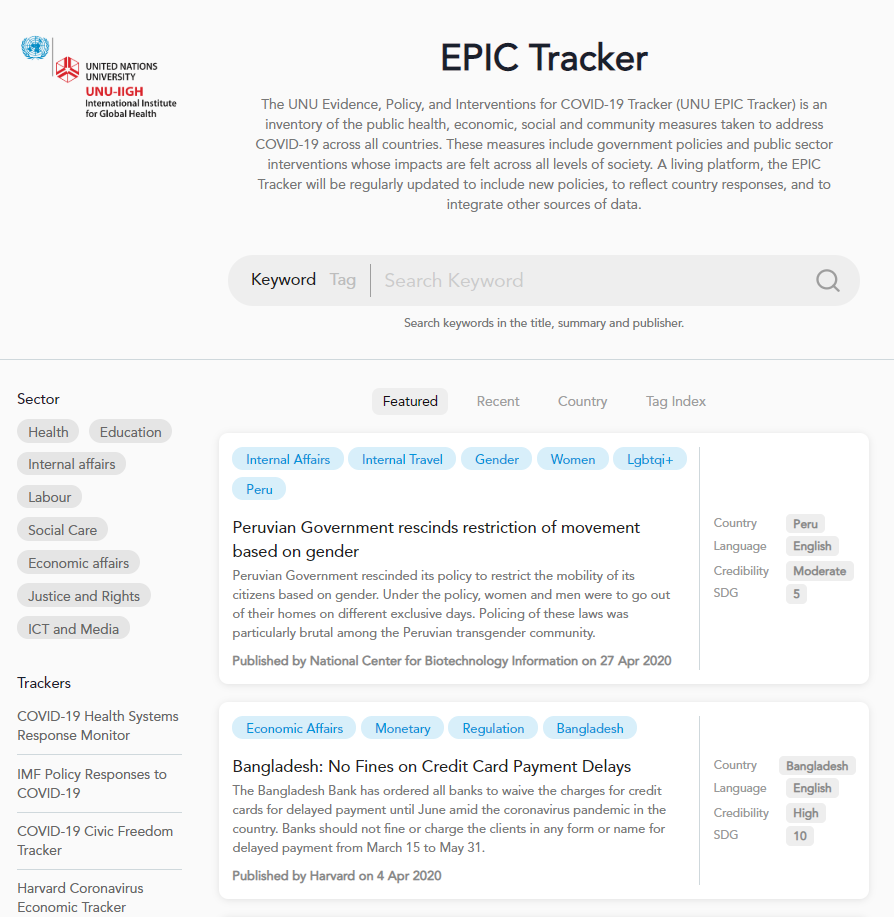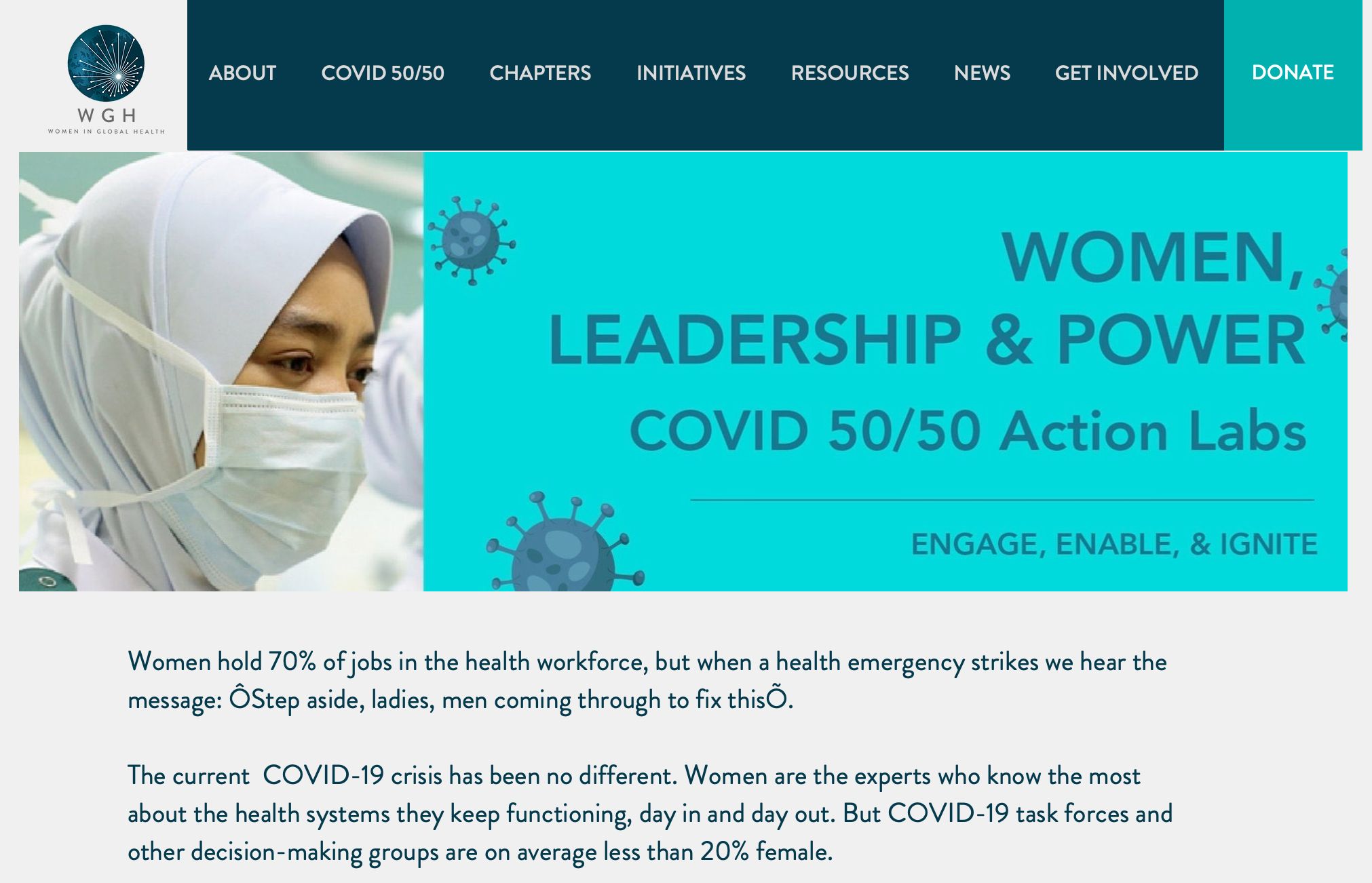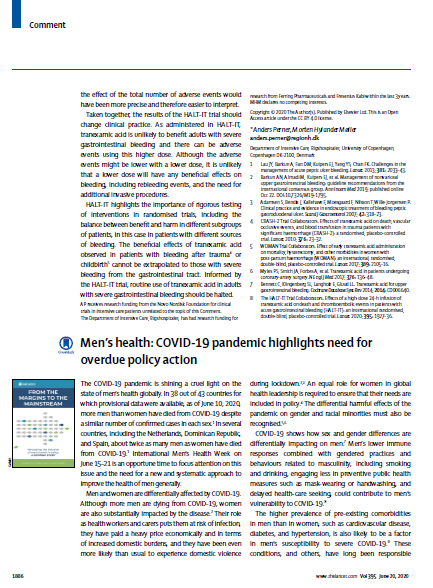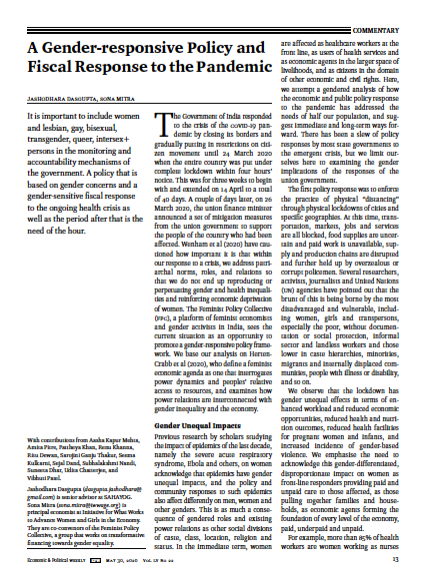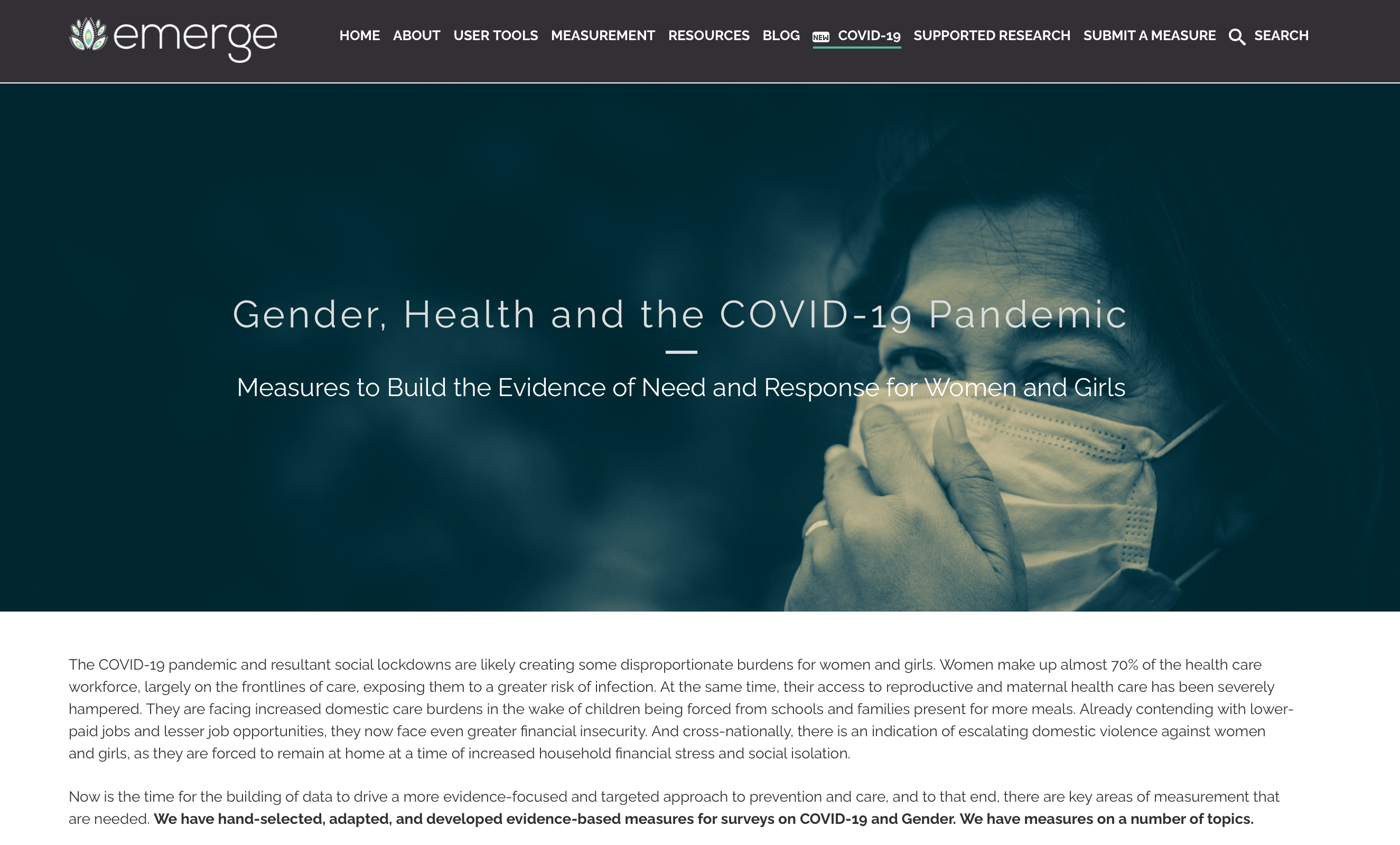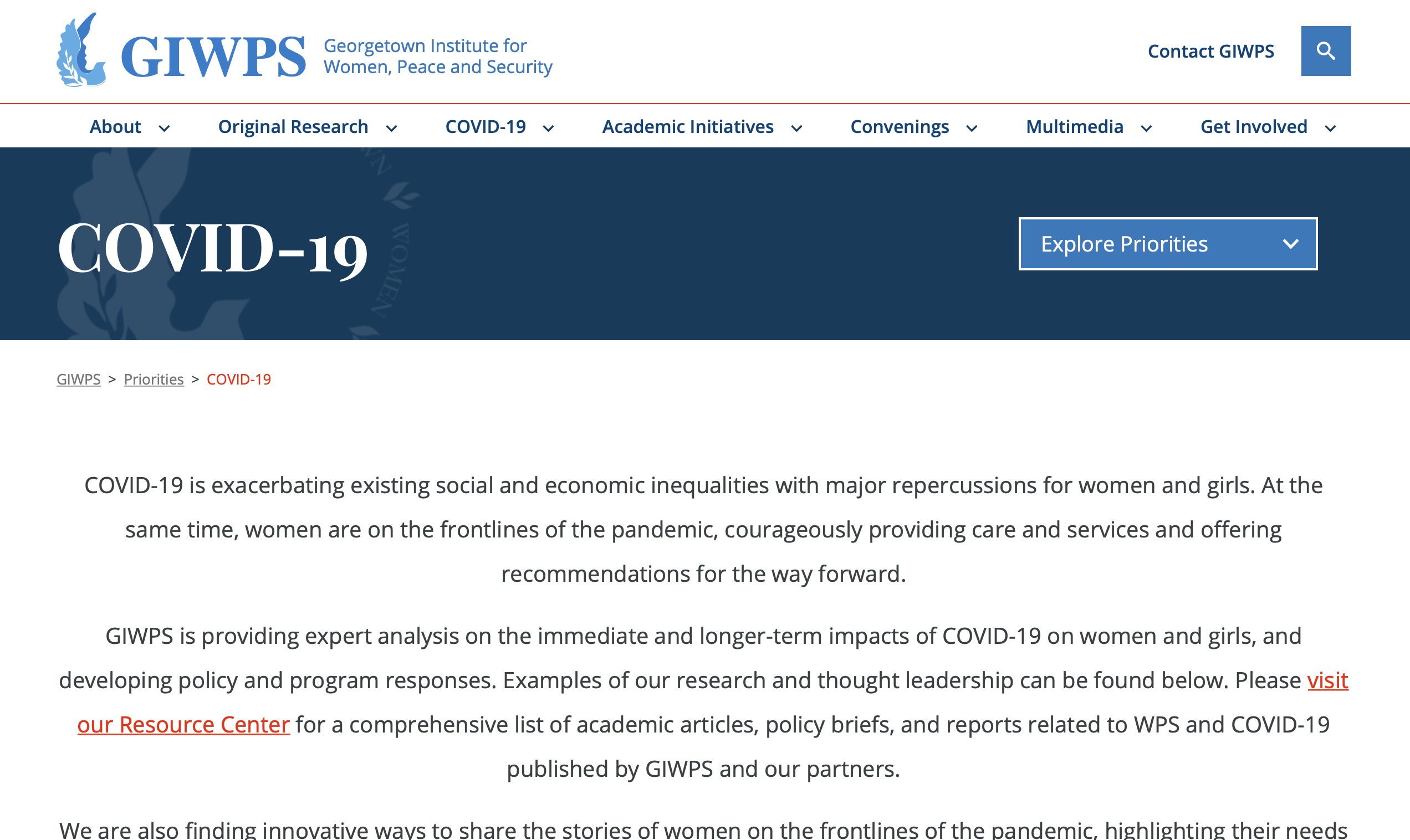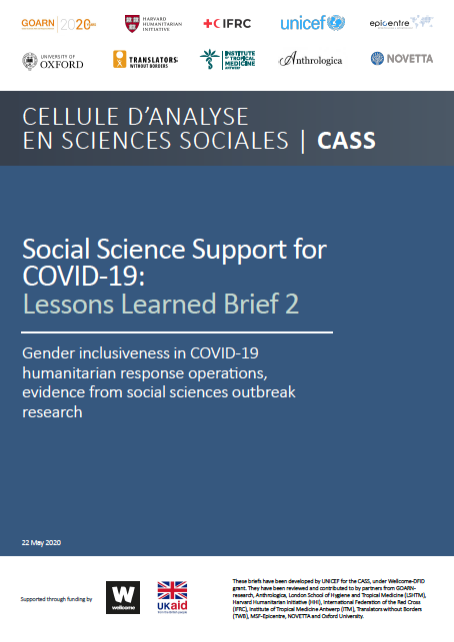Resources
![]()
This is a collection of resources from the Gender and Public Health Emergencies project and the Gender Working Group. You can search by year, country and type of resource. We hope you will enjoy reading this growing body of knowledge from around the world.
We have a wider collection of Gender and COVID-19 resources in this google document which is curated by Rosemary Morgan.
For better health security, it’s time to end gender biases that keep women out of global health leadership positions. Whenever a high-profile health emergency breaks out or an influential commission needs experts, it seems global health reverts to the default of delivered by women, led by men. The message seems to be Health emergency! Step […]
Ensuring the inclusion of marginalised women in fragile and conflict-affected states in COVID-19 prevention, response and recovery: The cracks in our systems have been brutally exposed. COVID-19 is amplifying inequalities and power disparities. Poverty, insecurity and gender-based violence are spiralling – and those who are already unheard and unseen will be hit the hardest. 2020 […]
A Call for Coordinated Global Action to Build Back Gender-Responsive Health Systems. There is a vibrant global movement of women in health actively organizing around COVID-19, sharing evidence and resources across borders in a spirit of sisterly solidarity. Women are the majority in health and social care. The expertise and the woman power is out […]
The pandemic has shown how essential care labour is to the functioning of the global economy. The COVID-19 pandemic has exposed a key truth of human society; at some time or another we all need to be cared for. To visualize this reality, imagine the COVID-19 pandemic is the Titanic and the economy is the […]
There are 27 members of the White House Coronavirus Task Force. Only two are women: Dr. Deborah Birx and Seema Verma, administrator of the Centers for Medicare & Medicaid Services. It’s a gender breakdown that’s echoed around the world. For example, 10 of the 31 members and advisers of the World Health Organization’s Emergency Committee […]
A collection of research, studies and other references covering the sex and gender dimensions of the COVID-19 pandemic, caused by the SARS-CoV-2 coronavirus. Mendeley (2020). Gender and COVID-19.
The direct impact of Covid-19 pandemic, the ensuing lockdown across the world and its effect on the population during and after the same is yet to completely emerge. This pandemic forces us, as a global community, to rethink how we look at and interact with each other as human beings and evaluate all the social […]
The Covid-19 pandemic has affected the lives of people all across the globe, particularly the vulnerable and marginalised sections of society. With an unprecedented number of people being forced to stay indoors we need to consider lived experiences of people in vulnerable positions such as women and girls who endure disproportionate amounts of hardships due […]
The role of immunological differences between females and males in the responses to SARS-CoV-2 infection appears to be justified. There is ample evidence that antiviral immunity differs between the sexes. These are caused by e.g., sex steroid hormone signaling (i.e., testosterone, estrogens, and progesterone), genetics (e.g., immune function genes that escape X inactivation), and sex-specific […]
The reasons behind the disproportionately higher number of deaths among men compared with women as a result of the COVID-19 pandemic may not be clear for some time. Here the authors discuss some of the potential biological explanations for why men seem to succumb more readily to the deadly effects of the virus. As COVID-19 […]
In March 2020, the World Health Organization (WHO) announced that COVID-19 (novel coronavirus) reflected a global pandemic. Early epidemiological analyses demonstrated that boys and men have similar rates of COVID-19 infection to girls and women. However, boys and men appear to be disproportionately impacted with respect to severity and mortality, including those from marginalised or […]
The COVID-19 pandemic has exacerbated and accentuated an ongoing crisis of care. A historic lack of investment in care, especially in areas of elder care, has resulted in long-term care (LTC) facilities being the epicentre of the pandemic in various nations. In France, one-third of all coronavirus deaths have been in care homes, and in […]
Caring Under COVID-19: How the Pandemic Is – and Is Not – Changing Unpaid Care and Domestic Work Responsibilities in the United States, a new report by Promundo and Oxfam as part of MenCare: A Global Fatherhood Campaign, reveals findings from a rapid poll exploring the gendered and racial impacts of COVID-19 on care work. […]
The UNU Evidence, Policy, and Interventions for COVID-19 Tracker (UNU EPIC Tracker) is an inventory of the public health, economic, social and community measures taken to address COVID-19 across all countries. These measures include government policies and public sector interventions whose impacts are felt across all levels of society. A living platform, the EPIC Tracker […]
Women hold 70% of jobs in the health workforce, but when a health emergency strikes we hear the message: ‘Step aside, ladies, men coming through to fix this’. The current COVID-19 crisis has been no different. Women are the experts who know the most about the health systems they keep functioning, day in and day […]
Men’s health: COVID-19 pandemic highlights need for overdue The COVID-19 pandemic is shining a cruel light on the state of men’s health globally. In 38 out of 43 countries for which provisional data were available, as of June 10, 2020, more men than women have died from COVID-19 despite a similar number of confirmed cases […]
It is important to include women and lesbian, gay, bisexual, transgender, queer, intersex+ persons in the monitoring and accountability mechanisms of the government. A policy that is based on gender concerns and a gender-sensitive fiscal response to the ongoing health crisis as well as the period after that is the need of the hour. Jashodhara […]
Gender, health and the COVID-19 pandemic: evidence-based measures for surveys on COVID-19 and gender
The COVID-19 pandemic and resultant social lockdowns are likely creating some disproportionate burdens for women and girls. Women make up almost 70% of the health care workforce, largely on the frontlines of care, exposing them to a greater risk of infection. At the same time, their access to reproductive and maternal health care has been […]
COVID-19 is exacerbating existing social and economic inequalities with major repercussions for women and girls. At the same time, women are on the frontlines of the pandemic, courageously providing care and services and offering recommendations for the way forward. GIWPS is providing expert analysis on the immediate and longer-term impacts of COVID-19 on women and […]
This brief was developed for actors working “on the ground” in outbreak response in humanitarian programmes and contexts. It focuses on the importance, reasons and recommendations for how to ensure gender inclusivity in outbreak response, based on evidence and lessons learned from CASS studies undertaken during the Ebola outbreak in the DRC (2018-present). Cellule d’Analyse […]
Resources
![]()
This is a collection of resources from the Gender and COVID-19 project and the Gender Working Group. You can search by year, country and type of resource. We hope you will enjoy reading this growing body of knowledge from around the world.
We have a wider collection of Gender and COVID-19 resources in this google document which is curated by Rosemary Morgan.
For better health security, it’s time to end gender biases that keep women out of global health leadership positions. Whenever a high-profile health emergency breaks out or an influential commission needs experts, it seems global health reverts to the default of delivered by women, led by men. The message seems to be Health emergency! Step […]
Ensuring the inclusion of marginalised women in fragile and conflict-affected states in COVID-19 prevention, response and recovery: The cracks in our systems have been brutally exposed. COVID-19 is amplifying inequalities and power disparities. Poverty, insecurity and gender-based violence are spiralling – and those who are already unheard and unseen will be hit the hardest. 2020 […]
A Call for Coordinated Global Action to Build Back Gender-Responsive Health Systems. There is a vibrant global movement of women in health actively organizing around COVID-19, sharing evidence and resources across borders in a spirit of sisterly solidarity. Women are the majority in health and social care. The expertise and the woman power is out […]
The pandemic has shown how essential care labour is to the functioning of the global economy. The COVID-19 pandemic has exposed a key truth of human society; at some time or another we all need to be cared for. To visualize this reality, imagine the COVID-19 pandemic is the Titanic and the economy is the […]
There are 27 members of the White House Coronavirus Task Force. Only two are women: Dr. Deborah Birx and Seema Verma, administrator of the Centers for Medicare & Medicaid Services. It’s a gender breakdown that’s echoed around the world. For example, 10 of the 31 members and advisers of the World Health Organization’s Emergency Committee […]
A collection of research, studies and other references covering the sex and gender dimensions of the COVID-19 pandemic, caused by the SARS-CoV-2 coronavirus. Mendeley (2020). Gender and COVID-19.
The direct impact of Covid-19 pandemic, the ensuing lockdown across the world and its effect on the population during and after the same is yet to completely emerge. This pandemic forces us, as a global community, to rethink how we look at and interact with each other as human beings and evaluate all the social […]
The Covid-19 pandemic has affected the lives of people all across the globe, particularly the vulnerable and marginalised sections of society. With an unprecedented number of people being forced to stay indoors we need to consider lived experiences of people in vulnerable positions such as women and girls who endure disproportionate amounts of hardships due […]
The role of immunological differences between females and males in the responses to SARS-CoV-2 infection appears to be justified. There is ample evidence that antiviral immunity differs between the sexes. These are caused by e.g., sex steroid hormone signaling (i.e., testosterone, estrogens, and progesterone), genetics (e.g., immune function genes that escape X inactivation), and sex-specific […]
The reasons behind the disproportionately higher number of deaths among men compared with women as a result of the COVID-19 pandemic may not be clear for some time. Here the authors discuss some of the potential biological explanations for why men seem to succumb more readily to the deadly effects of the virus. As COVID-19 […]
In March 2020, the World Health Organization (WHO) announced that COVID-19 (novel coronavirus) reflected a global pandemic. Early epidemiological analyses demonstrated that boys and men have similar rates of COVID-19 infection to girls and women. However, boys and men appear to be disproportionately impacted with respect to severity and mortality, including those from marginalised or […]
The COVID-19 pandemic has exacerbated and accentuated an ongoing crisis of care. A historic lack of investment in care, especially in areas of elder care, has resulted in long-term care (LTC) facilities being the epicentre of the pandemic in various nations. In France, one-third of all coronavirus deaths have been in care homes, and in […]
Caring Under COVID-19: How the Pandemic Is – and Is Not – Changing Unpaid Care and Domestic Work Responsibilities in the United States, a new report by Promundo and Oxfam as part of MenCare: A Global Fatherhood Campaign, reveals findings from a rapid poll exploring the gendered and racial impacts of COVID-19 on care work. […]
The UNU Evidence, Policy, and Interventions for COVID-19 Tracker (UNU EPIC Tracker) is an inventory of the public health, economic, social and community measures taken to address COVID-19 across all countries. These measures include government policies and public sector interventions whose impacts are felt across all levels of society. A living platform, the EPIC Tracker […]
Women hold 70% of jobs in the health workforce, but when a health emergency strikes we hear the message: ‘Step aside, ladies, men coming through to fix this’. The current COVID-19 crisis has been no different. Women are the experts who know the most about the health systems they keep functioning, day in and day […]
Men’s health: COVID-19 pandemic highlights need for overdue The COVID-19 pandemic is shining a cruel light on the state of men’s health globally. In 38 out of 43 countries for which provisional data were available, as of June 10, 2020, more men than women have died from COVID-19 despite a similar number of confirmed cases […]
It is important to include women and lesbian, gay, bisexual, transgender, queer, intersex+ persons in the monitoring and accountability mechanisms of the government. A policy that is based on gender concerns and a gender-sensitive fiscal response to the ongoing health crisis as well as the period after that is the need of the hour. Jashodhara […]
Gender, health and the COVID-19 pandemic: evidence-based measures for surveys on COVID-19 and gender
The COVID-19 pandemic and resultant social lockdowns are likely creating some disproportionate burdens for women and girls. Women make up almost 70% of the health care workforce, largely on the frontlines of care, exposing them to a greater risk of infection. At the same time, their access to reproductive and maternal health care has been […]
COVID-19 is exacerbating existing social and economic inequalities with major repercussions for women and girls. At the same time, women are on the frontlines of the pandemic, courageously providing care and services and offering recommendations for the way forward. GIWPS is providing expert analysis on the immediate and longer-term impacts of COVID-19 on women and […]
This brief was developed for actors working “on the ground” in outbreak response in humanitarian programmes and contexts. It focuses on the importance, reasons and recommendations for how to ensure gender inclusivity in outbreak response, based on evidence and lessons learned from CASS studies undertaken during the Ebola outbreak in the DRC (2018-present). Cellule d’Analyse […]
